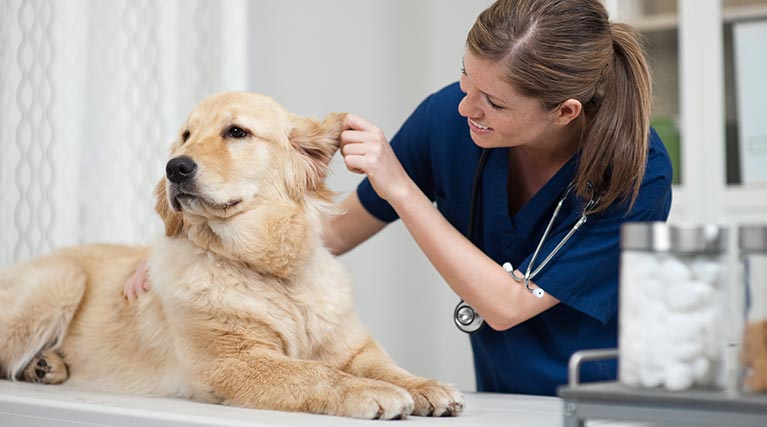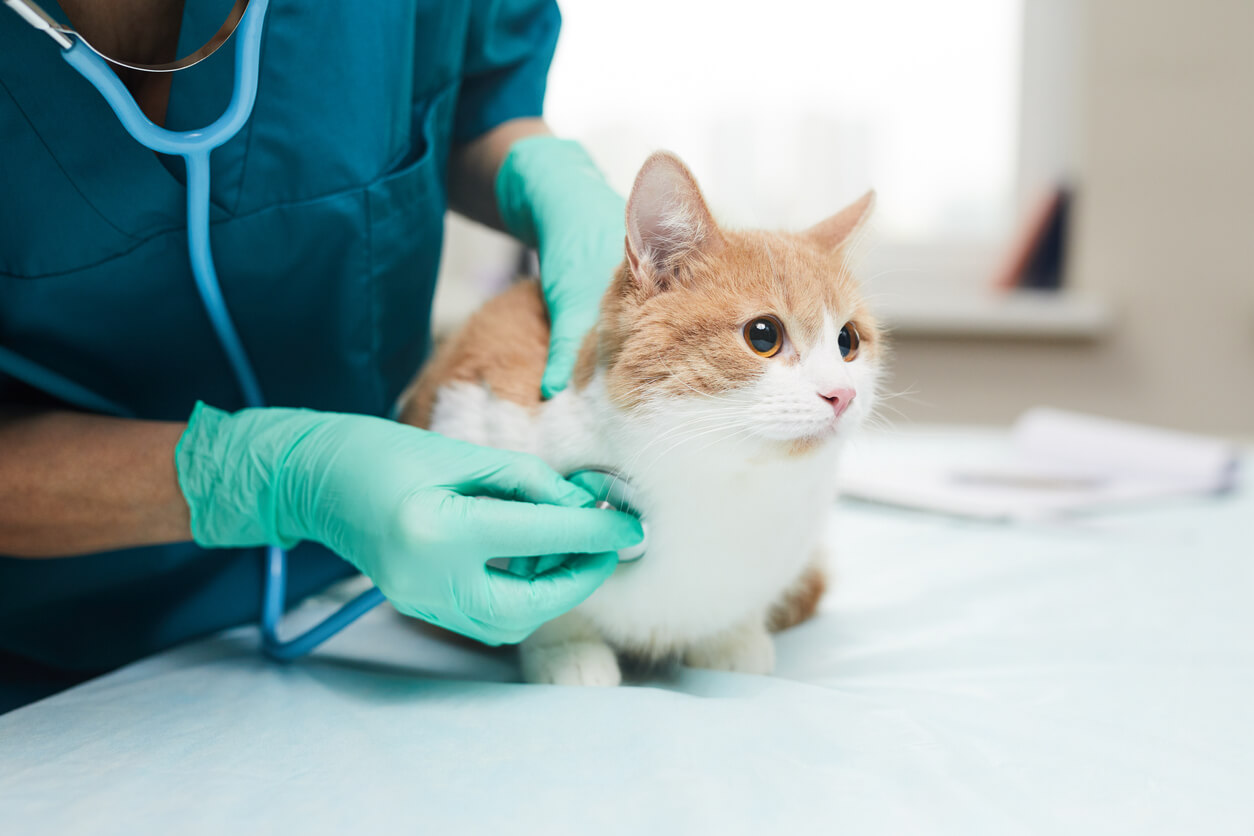How Pet Health Checkups Aid Find Very Early Signs of Illness and Maintain Your Pet Healthy And Balanced
How Pet Health Checkups Aid Find Very Early Signs of Illness and Maintain Your Pet Healthy And Balanced
Blog Article
Vaccination Standards From Your Relied On Vet
Vaccination standards given by your relied on vet play a critical role in securing your family pet's wellness and wellness. Additionally, resolving usual misconceptions surrounding vaccinations can even more improve pet dog proprietors' self-confidence in these precautionary procedures.

Significance of Vaccinations
Inoculations play a pivotal role in protecting family pets versus a range of avoidable conditions. By promoting the immune system to identify and fight particular pathogens, vaccines significantly decrease the occurrence of transmittable diseases that can influence a pet dog's health and durability. Not only do inoculations safeguard private animals, but they also add to herd resistance, thus lowering the total occurrence of conditions in the pet populace.
Timely inoculations help to alleviate the spread of diseases such as rabies, parvovirus, and distemper, which can have severe consequences for both human beings and family pets. Inoculations are often a need for boarding facilities, grooming services, and pet parks, making them necessary for those who wish to socialize their family pets.

Core Vaccines for Pets
While the details inoculation needs of pets can differ based upon private aspects, core vaccines are universally advised to safeguard versus one of the most significant and typical conditions (Pet Health Checkup). Core vaccines are those deemed important for all pet dogs, despite their way of life or geographical area, as they protect against highly transmittable and potentially deadly ailments
For pet dogs, the core vaccinations include those for canine distemper, parvovirus, adenovirus (hepatitis), and rabies. Adenovirus can result in liver condition, while rabies is a zoonotic illness that presents a danger to both animals and human beings.
In felines, core injections encompass feline panleukopenia, feline calicivirus, feline herpesvirus (rhinotracheitis), and rabies. Feline panleukopenia is a very infectious viral disease that affects the body immune system and intestines. Calicivirus and herpesvirus are major contributors to top respiratory infections in cats, while rabies continues to be a vital problem for public wellness.
Speak with your vet to guarantee your animals get their core inoculations on routine.
Non-Core Vaccines Explained
Non-core injections are customized to resolve particular threats associated with a family pet's direct exposure, lifestyle, and environment to specific conditions. Unlike core injections, which are globally suggested for all family pets, non-core injections are thought about based on individual situations. These vaccines are especially crucial for pet dogs that might experience one-of-a-kind pathogens because of their geographical location, traveling behaviors, or tasks.
Examples of non-core vaccines include those for Bordetella bronchiseptica, which is connected to kennel coughing, and Lyme illness, triggered by ticks. Pet dogs that often connect with other pets, such as those in boarding facilities, pet dog parks, or grooming settings, might gain from Bordetella inoculation. If you live in a location where Lyme illness is common, vaccinating against this disease can be a sensible option for outdoor-loving dogs.
Other non-core injections might include those for leptospirosis, canine flu, and feline leukemia, depending upon the particular threat elements present. It is important pop over to this site to have a comprehensive conversation with your vet about your animal's way of living and the possible requirement for these vaccines, ensuring a customized vaccination technique that ideal shields your furry pal.
Inoculation Schedule Introduction

As pet dogs grow, it is important to abide by the advised booster vaccinations. Pet Health Checkup. For grown-up pets, core vaccinations are usually provided every one to three years, depending on the certain injection and regional guidelines. Non-core vaccinations may be advised based on way of living elements and regional disease frequency, requiring a customized method
Normal veterinary check-ups are vital for updating inoculation routines. Your veterinarian can give guidance on the most suitable booster shots for your pet, factoring in age, health and wellness condition, and ecological dangers. By staying proactive and educated, pet dog owners can guarantee their furry companions obtain prompt and efficient vaccinations, consequently safeguarding their health and wellness throughout their lives.
Usual Misconceptions Regarding Vaccines
Misunderstandings concerning pet vaccinations can lead to complication and reluctance among family pet proprietors find concerning the booster shot procedure. One prevalent misconception is that injections are unnecessary for interior family pets. While it holds true that interior animals deal with reduced threats, they are not completely immune to illness, as pathogens can be presented with different ways, consisting of human apparel and other pets.
An additional mistaken belief is that vaccines can cause the illness they intend to avoid. In fact, the majority of vaccinations have inactivated or attenuated pathogens, which can not cause condition in healthy animals. Some pet dog owners likewise believe that their family pets should not be vaccinated if they are currently healthy and balanced; nevertheless, vaccinations are an aggressive action that helps protect against the beginning of health problem.
Additionally, numerous family pet owners fear that vaccinations will certainly cause long-term wellness difficulties. While negative effects can take place, they are momentary and generally moderate. The advantages of vaccination-- securing family pets from potentially deadly illness-- far surpass the risks. Comprehending these usual myths is crucial for liable pet ownership and making sure the health and safety and security of your furry friends. Always consult your veterinarian for precise information tailored to your family pet's certain requirements.
Verdict
In recap, adherence to inoculation standards is crucial for making sure the wellness and long life of pets. Core vaccinations provide important protection versus major diseases, while non-core vaccinations address certain dangers based upon individual way of lives. Developing a detailed inoculation schedule, combined with routine veterinary exams, helps with optimal health monitoring. Dispelling usual misconceptions surrounding vaccinations even more strengthens the value of notified decision-making in pet dog treatment. Ultimately, a positive approach to go to this site vaccinations is vital for keeping pet health.
Not only do vaccinations secure specific animals, but they additionally add to herd immunity, thus lowering the general prevalence of conditions in the pet populace.
False impressions about animal inoculations can lead to complication and hesitation among pet dog proprietors regarding the booster shot process. While it's true that interior pet dogs face reduced risks, they are not totally immune to diseases, as pathogens can be presented through different ways, consisting of human apparel and various other pets.
Some family pet proprietors also think that their pet dogs must not be vaccinated if they are currently healthy and balanced; however, inoculations are a positive step that assists prevent the onset of disease.
The benefits of inoculation-- securing animals from possibly deadly conditions-- much surpass the risks.
Report this page